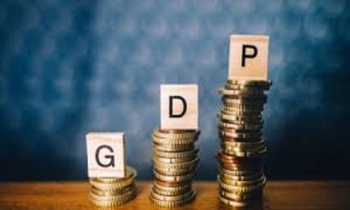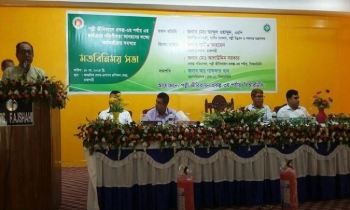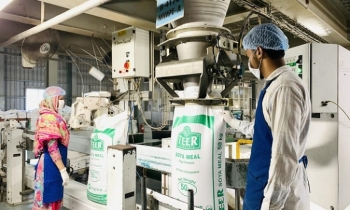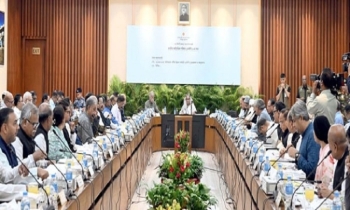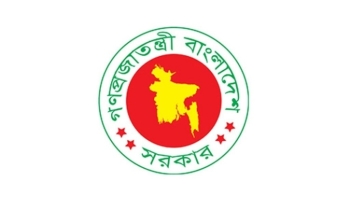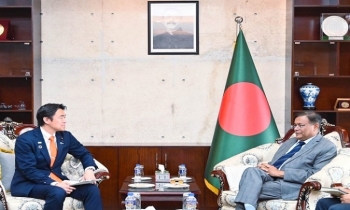Dormant mechanisms need to be revived to unlock Bangladesh-Pakistan trade: analysts
BI Report || BusinessInsider
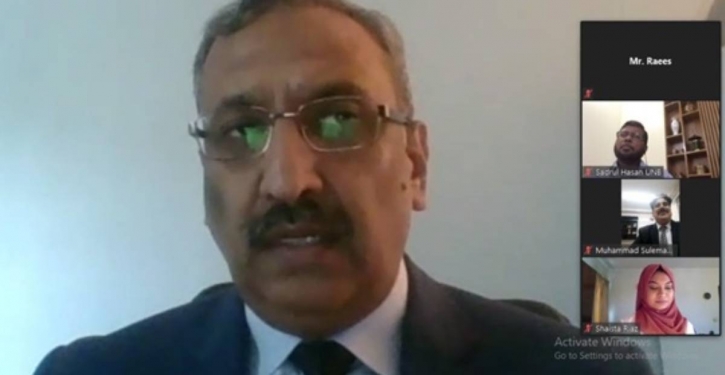
Pakistan House Director General Muhammad Athar Javed is seen along with other participants in an international webinar on Monday. Photo: Courtesy
Revival of the dormant consultative mechanisms is a must to unlock trade potential between Bangladesh and Pakistan, analysts say.
The observation was made at an international webinar on “Pakistan Bangladesh Economic Relations: Future of Cooperation” organised by Pakistan House, an Islamabad-based think tank on Monday, according to a statement.
Speaking at the event, Pakistan High Commissioner to Bangladesh Imran Ahmed Siddiqui said, “There are certain dormant consultative mechanisms at the government level which need to be revived as soon as possible such as Joint Economic Commission to boost trade between the two nations.”
“This platform remained inactive for many years, however, governments on both sides have agreed, in principle, to restart the process,” he said.
The high commissioner pointed fingers at addressing the hurdles that businessmen and exporters face in enhancing their businesses. “Bangladesh is among the top 10 exporting destinations of Pakistani products, which include cotton, yarn, fabric, leather, inorganic chemicals, vegetables and electronics. There is a need to promote better and more frequent interaction between the private sectors of the two countries to enhance mutually beneficial trade.”
He invited Bangladeshi businesses to explore opportunities being offered by China–Pakistan Economic Corridor (CPEC), which can be used as a transport link if Bangladesh is sourcing its imports from Western and Central China.
However, he said, bilateral relations even between the two closest countries are not always friction-free. “There may be some problems between Pakistan and Bangladesh too. But fortunately, the leadership in both Pakistan and Bangladesh is committed to moving ahead and to promoting better relations.”
Business Director at ACI Chemicals Limited Dhaka Manzur Rashid said, “Pakistan has become very serious regarding building relations with Bangladesh in the last few years. CPEC holds great importance and this opportunity will bring prosperity to Bangladesh as well because 30%-40% of the import is coming from China.”
Faisalabad Chamber of Commerce and Industry President Ihtesham Javaid said “We have seen that Bangladesh has made remarkable achievements by enhancing its textile and garment industry. Both countries have the potential that needs to be explored and offer new opportunities for businesses.”
In 2020, the volume of bilateral trade was $644 million, which was very little considering the market and opportunities, he said. “But the good news is that the volume of trade has increased significantly in 2021, as a rise in trade between Pakistan and Bangladesh has been reported.”
Tasho Enterprises Limited Director Nabeel Essa said, “Over the past few years, opportunities have come up from regular commodity trade to information technology and infrastructure. Other than just yarn and fabric, we need to focus on other aspects of building communication as well including promoting Bangladeshi artisans, brands, MNCs and business stakeholders.”
UNB Special Correspondent Sadrul Hassan said “It is important to understand that politics dominates everything. The phone call between Pakistan’s Prime Minister and Mr. Imran Khan Bangladesh’s Prime Minister Mrs. Sheikh Hasina was very important, especially in terms of establishing economic ties.”
Commercial Counselor at Pakistan Embassy, Bangladesh Suleman Khan said South Asian Free Trade Area (SAFTA) is an agreement reached on January 6, 2004, at the 12th SAARC summit in Islamabad. “It created a free-trade area of 1.6 billion people in Afghanistan, Bangladesh, Bhutan, India, the Maldives, Nepal, Pakistan, and Sri Lanka to reduce customs duties of not all traded goods but selected items to zero by the year 2016. Pakistan and Bangladesh both get the advantage from SAFTA.”
Some issues such as making visa procedures simple and launching direct shipping lines need to be addressed to bring pace in trade between the two nations, according to Khan.
Pakistan House Director General Muhammad Athar Javed said, “Both countries can help each other and grow each other’s economies. Pakistan and Bangladesh have the potential to work together but we need to have an open dialogue with public and private partners.”

